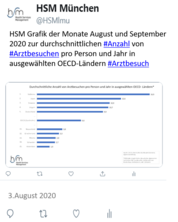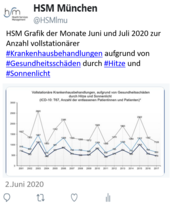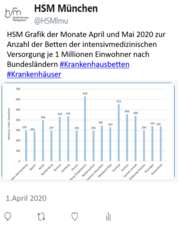Making shared decision-making (SDM) a reality: protocol of a large-scale long-term SDM implementation programme at a Northern German University Hospital
| Autoren/Herausgeber: |
Danner, M. Geiger, F. Wehkamp, K. Rueffer, J. U. Kuch, C. Sundmacher, L. Skjelbakken, T. Rummer, A. Debrouwere, M. Scheibler, F. |
|---|---|
| Erschienen: | 2020 |
| Publikationsart: | Articles in Refereed Journals (International) |
| erschienen in: | BMJ Open |
| Weitere Quellenangabe: | Volume 10(10) |
| Zusatzinformation: | DOI: 10.1136/bmjopen-2020-037575 |
Abstract
Introduction
Shared decision-making (SDM) is not yet widely used when making decisions in German hospitals. Making SDM a reality is a complex task. It involves training healthcare professionals in SDM communication and enabling patients to actively participate in communication, in addition to providing sound, easy to understand information on treatment alternatives in the form of evidence-based patient decision aids (EbPDAs). This project funded by the German Innovation Fund aims at designing, implementing and evaluating a multicomponent, large-scale and integrative SDM programme—called SHARE TO CARE (S2C)—at all clinical departments of a University Hospital Campus in Northern Germany within a 4-year time period.
Methods and analysis
S2C tackles the aforementioned components of SDM: (1) training physicians in SDM communication, (2) activating and empowering patients, (3) developing EbPDAs in the most common/relevant diseases and (4) training other healthcare professionals in SDM coaching. S2C is designed together with patients and providers. The physicians’ training programme entails an online and an in situ training module. The decision coach training is based on a similar but less comprehensive approach. The development of online EbPDAs follows the International Patient Decision Aid Standards and includes written, graphical and video-based information. Validated outcomes of SDM implementation are measured in a preintervention and postintervention evaluation design. Process evaluation accompanies programme implementation. Health economic impact of the intervention is investigated using a propensity-score-matched approach based on potentially preference-sensitive hospital decisions.





